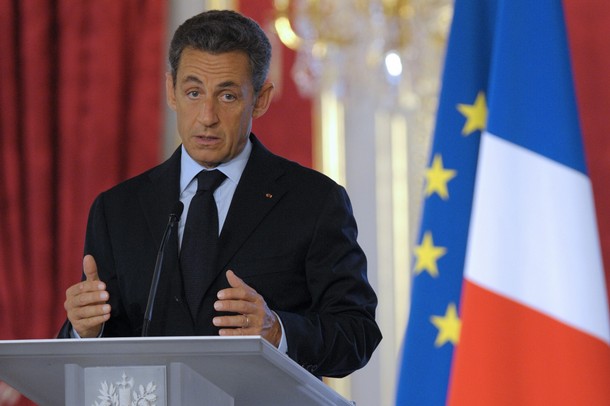
From Steven Erlanger, the New York Times: On the eve of a major conference here to try to consolidate international support and reconstruction aid for Libya’s fledgling government, President Nicolas Sarkozy of France praised the working of the NATO alliance in support of the rebels , calling it “an indispensable tool” despite Washington’s decision to take a back seat in the war.
“For the first time since 1949 NATO was put at the service of a coalition led by two determined European countries, France and Great Britain,” Mr. Sarkozy told French ambassadors and other dignitaries on Wednesday in a wide-ranging hourlong speech at the Élysée Palace, an annual performance to set the themes of French diplomacy that was more pointed than usual, with presidential elections next year.
Mr. Sarkozy, as ever, was passionate about his government’s accomplishments, both in helping oust the defeated president of Ivory Coast, Laurent Gbagbo, four months ago, and now Col. Muammar el-Qaddafi in Libya. He was also defiant about the need to aggressively meet the economic and political challenges of the future. It was vital to act, he said, “not submit.”
Libya was a particularly fierce point of pride, where the bombing campaign did halt an anticipated massacre of rebels, in contrast to the Bosnian wars, when United Nations troops were unable to stop the killings of 7,000 Muslim men and boys at Srebrenica. Mr. Sarkozy said Libya proved “a strong contrast” to past European weakness, and justified his decision to integrate France into NATO’s military command in 2009, ending the long separation initiated by [Charles] de Gaulle.
Recalling the complaints that “France would lose its independence” and “its image would be destroyed in the Third World,” he said, “Our Libyan friends ask every day for more action from NATO!”
Europe must focus more on its military capabilities, he said. “President Obama has presented a new vision of U.S. military engagement that implies that the Europeans must assume more of their responsibilities,” Mr. Sarkozy said. “If we don’t draw the necessary conclusions, Europe will wake up to a difficult reality.” (photo: Getty)
Image: getty%209%201%2011%20Nicolas%20Sarkozy.jpg
